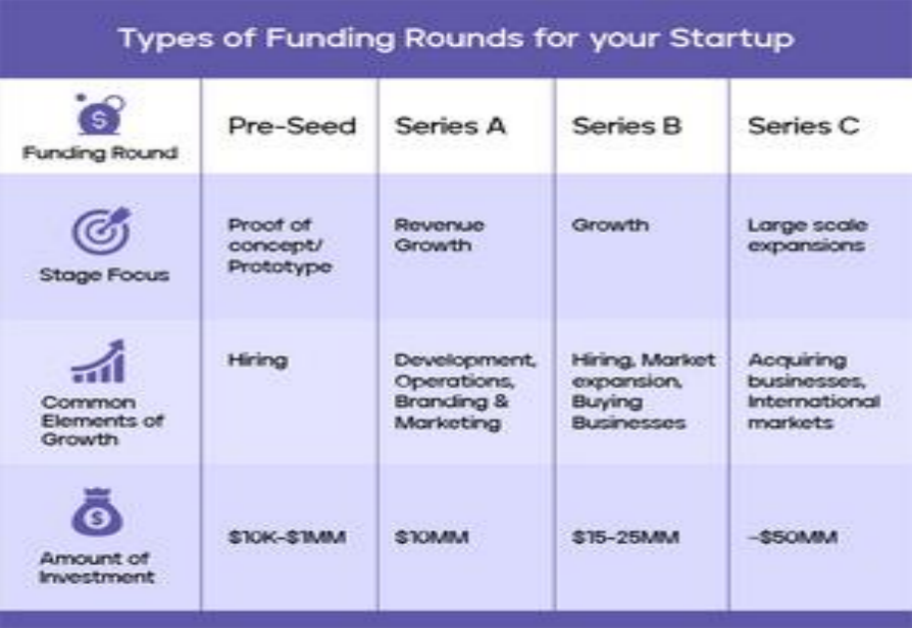For those who have considerable financial means, grasping how startup financing works is essential—not just for academic knowledge but also for making smart investments and starting new businesses. Delving deeper than just the basics, the details of financing phases, ways to assess value, and how equity works can reveal opportunities and protect investments within the ever-changing world of startups.

Unconventional Financing Stages
While many are familiar with the typical funding stages like Seed, Series A, and Series B, a growing number of startups are turning to alternative financing options. One such phase, known as “Pre-Seed+,” is pivotal for businesses to fine-tune their minimum viable product (MVP) through strategic micro-investments. These investments often come from specialized angel groups that focus on specific industries, offering both financial support and targeted mentorship. Additionally, the “Bridge+” round is becoming popular as a vital resource during economic challenges or when a company approaches a significant milestone. This type of financing differs from standard bridge rounds, as it can include convertible debt with equity incentives, providing investors with better potential returns.

Advanced Valuation Techniques
The way startups are valued has changed significantly, moving beyond basic methods like revenue multiples or discounted cash flows. For tech startups experiencing rapid growth, the “Option Pricing Model” (OPM) is becoming increasingly popular. This model considers equity as a call option, using the chances of various exit outcomes and accounting for the time value of money. In the field of biotechnology, the “Real Options Valuation” (ROV) method is often preferred because it recognizes the importance of flexibility in timelines for research and development. Additionally, new valuation platforms driven by data are emerging, employing machine learning algorithms to examine thousands of data points related to startups, such as user acquisition costs and burn rates, which leads to more precise and adaptable valuation assessments.
Sophisticated Equity Structures
Investors with high net worth and entrepreneurs ought to focus on equity arrangements that extend beyond the usual common and preferred stock types. For instance, dual-class share systems enable founders to maintain authority over important decisions while securing substantial funding. Some businesses are also introducing "phantom equity" plans for employees in the early stages, which offer a financial interest linked to the company’s success without reducing the actual equity. Moreover, there is a growing trend of using "equity-linked derivatives" in the financing of startups. An example is convertible warrants, which allow investors to change debt into equity at a specific price, and they can also trade these warrants in secondary markets to improve liquidity for early-stage investors.
Navigating the Investor - Entrepreneur Dynamic
The connection between entrepreneurs and investors in financing startups is quite intricate. For investors who spend a lot, grasping the idea of “co-creation financing” is crucial. Rather than taking a backseat role, these investors can play a vital part in a startup's development by using their industry ties, business knowledge, and market presence. Meanwhile, entrepreneurs need to pay attention to “anti-dilution clauses” in their investment contracts. These clauses safeguard early investors from losing too much equity during later funding rounds, usually by means of price-based or pro-rata adjustments. Successfully negotiating these clauses can determine whether the relationship between the investor and entrepreneur remains collaborative or becomes problematic in the future.
Regulatory and Tax Considerations
In the world of financing for startups, the rules and taxes can greatly influence profits. Wealthy investors need to be aware of the "Qualified Small Business Stock" (QSBS) regulations in the United States, as these can offer significant tax relief on gains from qualifying startups. When it comes to global markets, knowing the rules regarding cross-border investments is essential. Some nations provide tax advantages for investing in early-stage companies in specific fields, while others impose strict limits on foreign investments. Keeping up with these tax and regulatory details can enhance investment profits and ensure adherence to laws.

To wrap up, understanding startup financing involves exploring non-traditional phases, complex valuation techniques, advanced equity arrangements, and the detailed relationship between investors and entrepreneurs. For those with considerable financial resources, this expertise is vital not just for making well-informed investment choices but also for fostering successful startups in a tough market.




